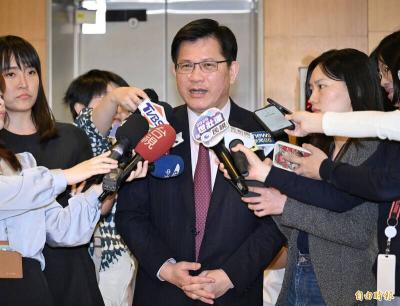Protesters are planning a rally next month against a proposed economic cooperation framework agreement (ECFA) with China and to drum up support for a nationwide referendum on the controversial pact.
Speaking for a number of pro-independence organizations, Michelle Wang (王美琇), an official at the Taiwan Rescue Action Alliance, said that large-scale demonstrations would be “inevitable” if President Ma Ying-jeou (馬英九) continued to ignore demands that the pact be subject to greater scrutiny.
Government watchdog group Citizen Congress Watch said on Friday that unless the government agreed to turn over some of its information on the ongoing ECFA negotiations with China to the Democratic Progressive Party (DPP), DPP Chairperson Tsai Ing-wen (蔡英文) would head into this month’s debate on the pact “with her eyes closed.”
The Presidential Office has so far rebuffed DPP requests for more details on the “early harvest” lists proposed separately by Taiwan and China, the content to be included in the pact or government studies on the impact of an ECFA.
In an interview in Kaohsiung County on Saturday, former vice president Annette Lu (呂秀蓮) also criticized the closed-door negotiations between Taiwanese and Chinese negotiators in Taoyuan County late last month.
She called on the government to halt further talks on the agreement until after the debate on April 25 between the president and Tsai, after reports said the third round of talks could take place by the end of the month.
Any more negotiations held with China that did not take into consideration the concerns of the opposition party would be “without meaning,” she said.
While Wang said that a date for the planned protest had yet to be decided, it would most likely be held during the middle or end of next month.
She said she was confident there would be a substantial turnout of concerned citizens.
However, media yesterday quoted sources as saying that the protests could be held on May 20, the second anniversary of the president’s inauguration.
The government has said that it hopes to wrap up negotiations and sign the agreement before June.
Meanwhile, although the DPP has yet to say whether it would support a planned rally, DPP spokesperson Tsai Chi-chang (蔡其昌) said that rallies against an ECFA were still under consideration, as “anything is possible.”
“If Ma’s administration continues to neglect public opinion, engage in secret government policies and ... signs the agreement unilaterally, people will essentially be forced onto the streets to [voice their protest],” he said.

Taiwan would welcome the return of Honduras as a diplomatic ally if its next president decides to make such a move, Minister of Foreign Affairs Lin Chia-lung (林佳龍) said yesterday. “Of course, we would welcome Honduras if they want to restore diplomatic ties with Taiwan after their elections,” Lin said at a meeting of the legislature’s Foreign Affairs and National Defense Committee, when asked to comment on statements made by two of the three Honduran presidential candidates during the presidential campaign in the Central American country. Taiwan is paying close attention to the region as a whole in the wake of a

Chinese Nationalist Party (KMT) Chairman Eric Chu (朱立倫), spokeswoman Yang Chih-yu (楊智伃) and Legislator Hsieh Lung-chieh (謝龍介) would be summoned by police for questioning for leading an illegal assembly on Thursday evening last week, Minister of the Interior Liu Shyh-fang (劉世芳) said today. The three KMT officials led an assembly outside the Taipei City Prosecutors’ Office, a restricted area where public assembly is not allowed, protesting the questioning of several KMT staff and searches of KMT headquarters and offices in a recall petition forgery case. Chu, Yang and Hsieh are all suspected of contravening the Assembly and Parade Act (集會遊行法) by holding

President William Lai (賴清德) has appointed former vice president Chen Chien-jen (陳建仁) to attend the late Pope Francis’ funeral at the Vatican City on Saturday on his behalf, the Ministry of Foreign Affairs said today. The Holy See announced Francis’ funeral would take place on Saturday at 10am in St Peter’s Square. The ministry expressed condolences over Francis’ passing and said that Chen would represent Taiwan at the funeral and offer condolences in person. Taiwan and the Vatican have a long-standing and close diplomatic relationship, the ministry said. Both sides agreed to have Chen represent Taiwan at the funeral, given his Catholic identity and

Taiwan would welcome the return of Honduras as a diplomatic ally if the next president of that country decides to make such a move, Minister of Foreign Affairs Lin Chia-lung (林佳龍) said today. “We would welcome Honduras if they want to restore diplomatic ties with Taiwan after their elections,” Lin said during a legislative hearing. At the same time, Taiwan is paying close attention to the Central American region as a whole, in the wake of a visit there earlier this year by US Secretary of State Marco Rubio, Lin said. Rubio visited Panama, El Salvador, Costa Rica and Guatemala, during which he